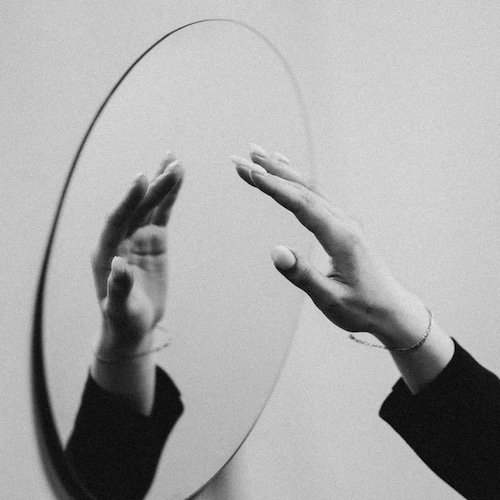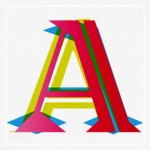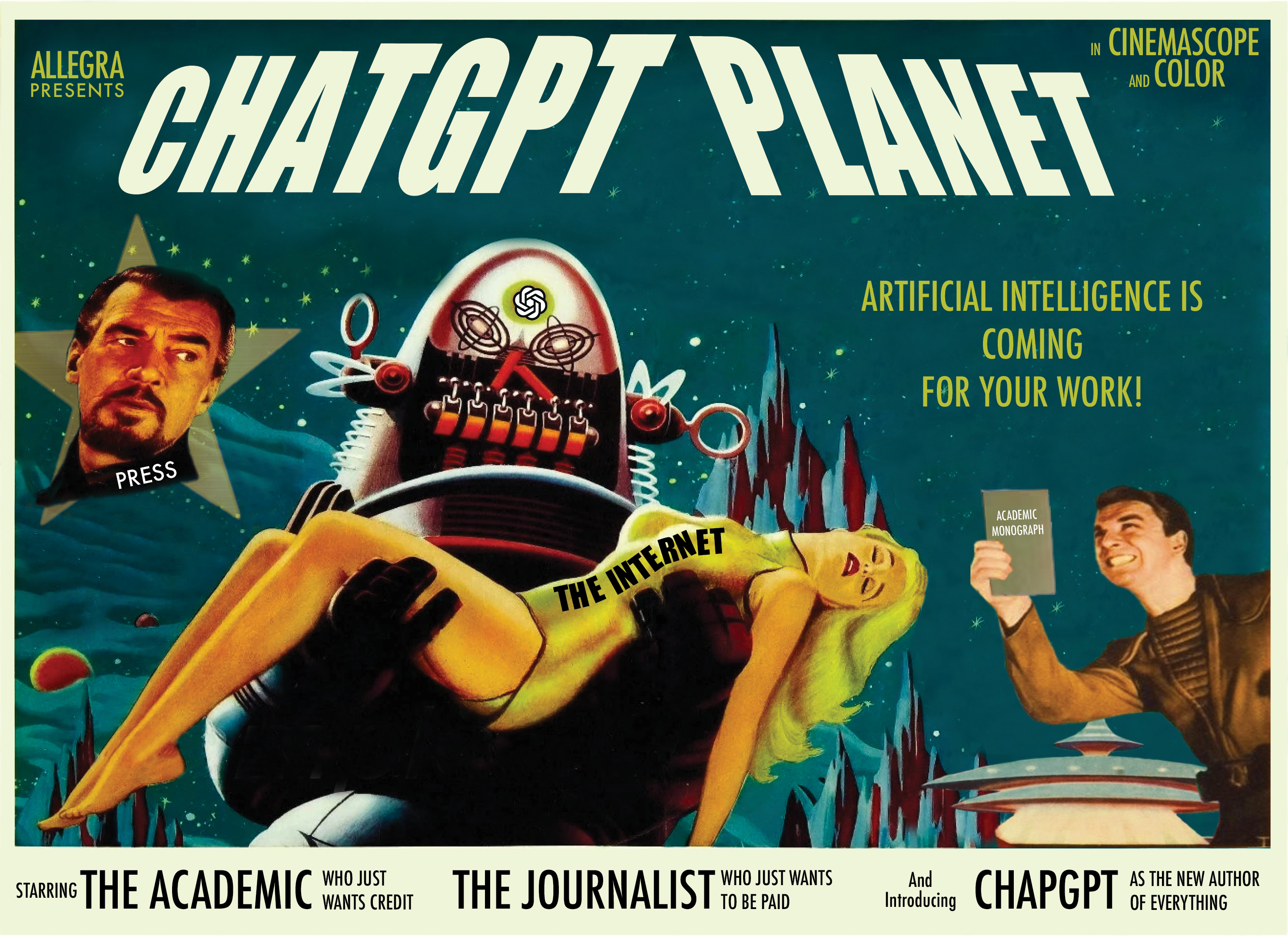At Allegra, we believe and know from our own experience that the fresh eyes of our peers can help us improve drafts, weed out waffle, strengthen an argument, and find new sources of inspiration. Yet we do not believe that the anonymity of the peer review is universally conducive to good academic practice.
Many of us came through institutions that inculcated competition and the struggle over supremacy in weekly colloquia; we have experienced how lack of care for others’ work not only creates a corrosive atmosphere among colleagues, but also eventually alienates people from their own work: if you expect others to treat your work like you treat theirs, of course you will seek to play it safe, build in protections, and lose all sense of exploration, playfulness, and curiosity in your writing. In this collective post we’d like to introduce our readers, Allies and Allies-to-be to what we have come to call “care review”.
Peer review and its flaws
The double-blind peer review system, the supposed gold standard of academic publishing, is, in fact, a relatively new system that became dominant from the 1950s onwards. One of the supposed benefits of the system is that it generates trust in the final product: we should trust that the work published that has gone through double-blind peer review has been quality-controlled by scholars with expertise in the field, who by dint of their blindness, would be unable to be biased or play favorites. Spelled out like that, it sounds funny, especially for a (still smallish) discipline like anthropology where the chances that, as expert reviewer au fait with current research in your field, you might easily identify the author(s) anyway.
This system also assumes that the only thing a reviewer could be biased about was the person of the author, and ignores the power structures that govern academic careers and scholarly knowledge production. Reviewers might guard the gate on other grounds (simple pettiness, or more likely their assumptions about authors’ institutional affiliation, imputed ‘standards’ of proficiency in English, and, by extension, authors’ race, gender, ethnicity, etc.). Another key problem is gatekeeping in the narrow sense: those best qualified to evaluate a paper might well also have the strongest interest in defending their expertise by setting up obstacles to others who might encroach upon their turf.
There have been plenty of complaints about this system, including that it is rarely genuinely ‘blind’, that the shield of anonymity tends to amplify negative qualities in reviewers (we can be really horribly mean to each other), and that terrible articles still get published (TWQ, here’s looking at you). Peer-review can be extremely painful at times, especially for authors who have poured their energy and their heart into a text for months, sometimes years, and who find their piece torn apart by not-always-very-empathetic reviewers — so much so that the proverbial ‘Reviewer 2’ has spawned memes and an FB group dedicated to their downfall. It can also be painful for reviewers, who volunteer to squeeze these tasks into their always overstretched schedules, to be filed under ‘academic service’, but seldom rewarded and soon forgotten.
Introducing care review (the philosophical why)
Since its inception, Allegra has drawn its inspiration from feminist ethics – you may have noticed the ‘pink’ colour that still dominates the design of our website, a legacy we are unlikely to jettison in the future. We conceived this space as a place of care and mutual support, principles we found radical in the context of the neoliberal university that emphasizes continuous but often fruitless competition and reproduces the dominant model of the lonely academic alpha (often but not always male) superstar as a result.
Blindness in reviewing often leads less to ‘objective’ quality control, but to some kind of textual social distancing in which we lose track of the people who poured their heart (and work and time and knowledge and passion) into a draft paper. An ethics of care changes that, we believe. Because care matters to us, we wanted to revisit the paradigm of double-blind peer review, and offer something better suited to who we are and our vision of the university.
This is why we opted for a ‘care review’ model at Allegra. The idea behind this is that we take away the needlessly negative and daunting aspects of submitting a text to an academic outlet – the stress, anguish and loneliness – and replace it with a constructive, open, and productive process through which both reviewer and reviewee come to feel emboldened and respected.
Nuts and bolts of care review
Any submission (individual post or thread) that lands on an editor’s desk, and anything we think has merit and is a good thematic fit, we will either farm out to another editor, or provide some editorial feedback ourselves. Once a version of a text exists that we think is worthy of somebody else’s time, we find an external peer reviewer, drawing on our own extensive networks, the assembly of former authors, or other not-yet-Allies, whom we invite into the fold by asking them to review a text for us.
And here’s the kicker: author and reviewer will not be hidden from one another. To work ‘non-blind’ means that people with related expertise and shared knowledge or approaches get connected, and that both have a chance to benefit from a genuine peer-to-peer collaboration, actively disregarding the hierarchies which are automatically established in a blind peer-review procedure, and not just — and this is important — between reviewers and authors, but also between authors and us editors: we’ll not just send you snippets of what we think you should take away from the review process; we allow it to unfold on its own terms, without hiding behind formal procedure.
We feel that this is the best way to foster collegiality and trust. As anyone who has ever been in a trusting relationship knows that trust is predicated on vulnerability (on openness, on willingness to be affected) on all sides. We are able to trust our friends, partners, children, teachers and fellow members of the Allegra editorial collective because we reveal something of our vulnerabilities and foibles to one another, safe in the knowledge that we will not be demeaned, destroyed or judged. This has served us well so far, and we have had no complaints – and in some cases, we have genuinely stimulated subsequent cooperations between reviewers and reviewees.
Calling it ‘care review’ might seem a bit corny, but we are not too proud not to be corny if it is for the good fight. Yet, it changes the triad of publishing — author, editor, reviewer — into a collective, three people who are all invested in making something better. If you commit to do a review, you commit to care about the outcome, and if we commit to publishing something, we commit to the outcome just the same.
This, we hope, can also change the way in which reviewers view the task (and the feedback we get from our reviewers would confirm that hunch). Often, when asked to peer review a piece, we bury it at the bottom of a long to-do-list — teaching, marking, writing, descaling the kettle. When we finally open the draft, we’re already a bit annoyed that we have to do this rather than work on ‘our own thing’. So what we are trying to foster here is a sense of mutual care for a piece. Care review should ideally not be a burden, but rather a (critically rigorous and serious) joyful and creative task.
Care review should ideally not be a burden, but rather a (critically rigorous and serious) joyful and creative task.
Challenges and open questions
At the same time, there is no guarantee that non-blind peer review might not also reproduce inequalities related to gender, race, institution, national/global positionality, the level of seniority, and other biases. Not all hierarchies constitutive of neoliberal academia are solved through non-blind peer review. Our experiences have been very positive so far, but the system still could be exploited by people acting in bad faith, or biases could be perpetuated despite increased transparency.
So, the final word has not been spoken about non-blind peer-review, but that is fine, because the main outcome is the emergent process itself and the kind of cultural transformation we think can result from it. The process is meant to open a genuine dialogue where the back-and-forth between author and reviewer leads to mutual enrichment, a change of opinions, and learning. By committing to non-blind review, we also want to re-open the question of what the genuine benefits of blind review are. Even if you want to continue with blind review, our challenge is that this practice, which can lead to so much dismay and frustration, better be carried out ethically, and in the spirit of an open, frank conversation.
Invitation
Imagine this: you meet the person who carefully reviewed your submission to Allegra at a conference, workshop, or when dancing at the disco bumper to bumper. You thank them for the time they took to carefully read and make improvements on your piece. They reiterate what they thought was unique and interesting in your piece. Through this, we may actually get to know who our peers are.
Featured image courtesy of Михаил Секацкий, Unsplash.com.






1 Comment